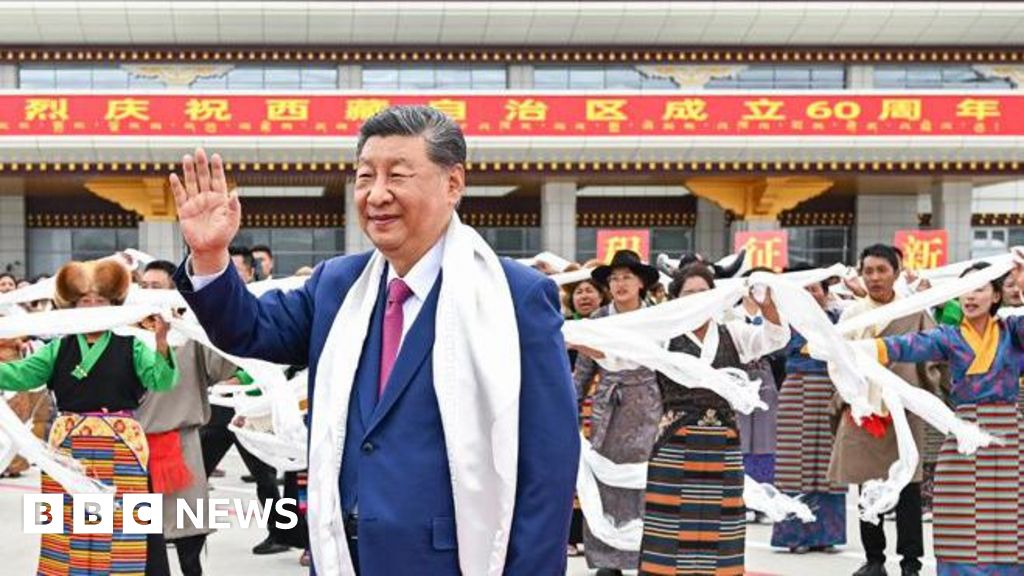President Xi Jinping made a surprise visit to Tibet, addressing 20,000 people to commemorate 60 years since the establishment of the autonomous region following China’s annexation. This marks only his second presidential visit to the closely monitored area. Xi commended the local government for combating separatism, acknowledging the longstanding Tibetan resistance to Chinese rule. His visit to Lhasa, challenging for someone his age due to its high altitude, signals his intent to assert control over the region. Although he did not mention the Dalai Lama, the Tibetan spiritual leader exiled in India since 1959, Xi emphasized the importance of political and social stability, ethnic unity, and religious harmony for governing Tibet. Recent tensions arose after the Dalai Lama stated that his office would choose his successor, a decision Beijing claims is its prerogative. Despite advocating for self-rule within China, Beijing views the Dalai Lama as a separatist. China insists Tibetans can freely practice their religion, although critics argue their cultural identity is being eroded. A recent BBC visit to a Tibetan monastery revealed claims of ongoing human rights abuses. China asserts improvements in living standards and denies suppressing freedoms. Established as the Tibet Autonomous Region in 1965 following an unsuccessful revolt against Chinese control, Tibet was highlighted in Chinese state media during Xi’s visit, with images of welcoming festivities. Xi met with local leaders, promoting economic and cultural exchanges, the use of a common national language, and outlining the CCP’s focus on stability, development, environmental protection, and border security. Recent educational policies require Tibetan children to attend state schools and learn Mandarin. Xi also urged the alignment of Tibetan Buddhism with socialist principles. His visit coincides with the construction of the world’s largest dam, the Motuo Hydropower Station, on the Yarlung Tsangpo river. The project, expected to surpass the Three Gorges Dam, aims to promote ecological preservation and regional prosperity. However, there are concerns about China’s potential control over the river, affecting regions in India and Bangladesh.

